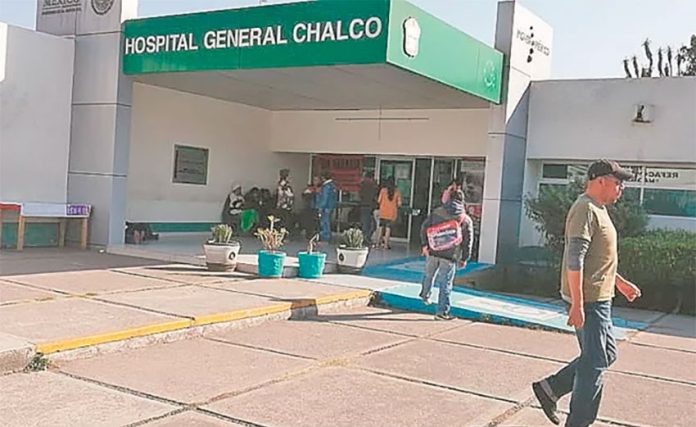It has been touted as completely free but a week after the federal government’s new universal healthcare scheme went into effect, patients are finding a very different reality.
The National Institute of Health for Well-Being (Insabi), a new government department tasked with providing medical services to millions of Mexicans without insurance, started operations on January 1.
A week later, the newspaper El Universal found that patients at the General Hospital in Mexico City, two healthcare centers in Nezahualcóyotl, México state, and the Chalco General Hospital in the same state have had to buy their own medicine and medical supplies such as gauze, rubbing alcohol and ointments even though the Insabi website states that beneficiaries of the healthcare scheme will receive free treatment “without restrictions.”
Some patients who qualify for the Insabi program because they are not covered by the IMSS and ISSTE social security schemes have also been charged daily rates as high as 3,000 pesos (US $160) for their hospital stays.
One person who has been charged for his treatment is Óscar Quintana, a diabetes patient who was admitted to the General Hospital in Mexico City on January 2 after experiencing extreme pain in his left foot.
“They’ve charged us for everything,” family member Alma told El Universal.
“[They charged us for] the emergency care, the healing material – they sent us to buy antibiotics and [other] medicine. For a day in hospital, it’s 450 pesos [US $24] when before it was just over 200. We’ve spent almost 5,000 pesos in the past days. I wonder when free care will be a reality . . .” she added.
Another patient at the General Hospital in the capital is Ángel López, a young man who was hit by a car on January 5. His family is currently trying to raise 45,000 pesos (US $2,400) so that he can undergo the surgery he requires.
The man’s aunt said that her nephew was first taken to a hospital in Zumpango, México state, where he was admitted after showing that he was covered by Seguro Popular – the insurance program the new Insabi scheme is designed to replace.
“. . . They accepted the policy but for two days during which they didn’t do anything to him, they charged us 6,000 pesos,” Angélica Pérez said.
“Then they transferred him to the General and the doctors said they needed a pin to operate on him; [they said] they had it here but we would have to pay 25,000 pesos [for it] plus 20,000 for the operation,” Pérez added.
At a healthcare center in México state, Chalco resident Karla Cárdenas told El Universal that she brought her young son in after he fell and suffered a cut beneath one of his eyebrows. She said the staff told her that they could treat her son but didn’t have the necessary materials.
“[Buying the materials] is not expensive but I think I could provide the same [treatment] at home. What I needed was to know if my child needed stitches and fortunately they said that he didn’t. I don’t know how Insabi works but I hear the president saying every day that the care is free and that the medicine is as well but . . . [at] the hospital they tell you that they don’t have any so who do you believe? The care is good, you can see that the people are committed [to their work] but how can they do it if they don’t have what they need?”
Back at the General Hospital in Mexico City, Guerrero resident Angélica Durán had a different experience, telling El Universal that she hadn’t been required to pay for any of her treatment, which included blood tests and an ultrasound.
“They haven’t charged us anything. I came because I had a pain in my stomach that was so strong that I couldn’t even walk. We went to a hospital in Guerrero but they sent us here, they told us that they would attend to us for free and that’s the way it’s been,” she said.
However, at least among the people who spoke with El Universal, Durán’s experience is unique.
In response to complaints from patients and family members who had to pay for hospitalization, treatment, medicines and supplies, Insabi clarified that medical care is only free at primary and secondary healthcare facilities, and not at specialist, tertiary hospitals.
“In relation to the questions that have arisen due to the charging of fees at national health institutes and federal hospitals, Insabi provides [free] medical services at the primary and secondary level of care to all people who don’t have social security. In accordance with article 36 of the General Health Law, national health institutes and federal hospitals are subject to obtaining fees. . . for providing tertiary level services,” the National Institute of Health for Well-Being said.
The statement doesn’t, however, explain why patients at healthcare centers in Nezahualcóyotl, for example, were required to pay for medicines and supplies.
Insabi also addressed uncertainty among people formerly covered by Seguro Popular with regard to how to access its free services.
The institute said there is no need to enroll in the scheme prior to receiving medical treatment, explaining that the registration process will be completed by staff at the healthcare facilities where people seek care.
Source: El Universal (sp)
